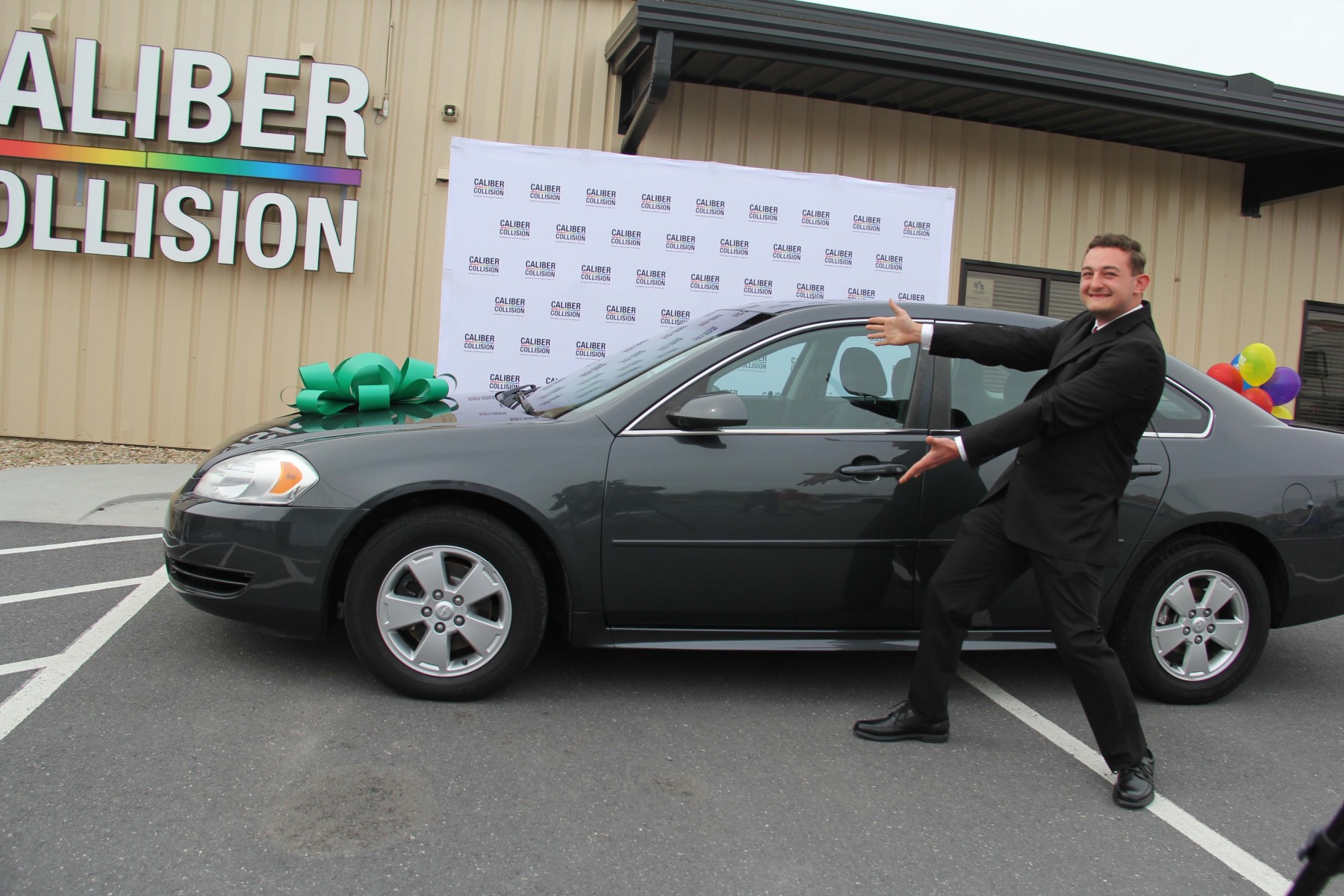Reliable Ride
Damaged vehicles repaired and donated to the carless.
Reliable transportation is a challenge for many. For those living in bigger cities with access to public transportation, it’s not a big deal. But, for those outside of large, metropolitan areas, having a car can make all the difference.
The National Auto Body Council Recycled Rides™ program works with insurance companies, body shops, vendors and more to provide renovated cars to those who need it.
“The Recycled Rides program is an amazing collaborative effort for the collision repair industry,” says Linda Sulkala, National Auto Body Council Recycled Rides program manager. “We collaborate with insurers, body shops, parts vendors, schools, everybody. We have a great wealth of membership we can call upon to help the mission of the National Auto Body Council.”
The body shops, parts vendors, paint shops and more donate their time, labor and equipment while repairing vehicles for the Recycled Rides program. State Farm® partners with the National Auto Body Council to provide vehicles for the Recycled Rides program.
Eric Showalter, lead collision repair instructor at Washburn Institute of Technology in Topeka, Kan., teaches students the skills needed in the car repair world. His shop works on cars for Recycled Rides recipients.
“Anything we receive for Recycled Rides goes back on the street,” Eric says. “Working on those cars is training for our students to build their skills and confidence.”
Students in the program get hands-on instruction from people in the car repair field. They also participate on the committee that reviews applications for the refurbished cars.
“We’re building hands-on skillsets for automotive technicians, but we’re also building community service, outreach and connecting them with student ambassadors,” Eric says.
Once the car has been found and repaired, a recipient is chosen.
Samantha Brooks, Impact Living Services site supervisor for Harrisonburg, Va., works with at-risk youth from the foster care system in her area. Impact Living Services specifically works with children who age-out of foster care at 18, but choose to stay in the system until they turn 21.
“We take youth that are eligible and have a certain level of responsibility and independence. Once they are accepted, we get them an apartment and help them set goals. For a lot of them, it’s the first place they can call their own. Foster care is not something any child chooses, so for the first time, they are making a choice to be somewhere purposefully,” Samantha says.
Samantha says most youth rely on public transportation for daily needs, such as grocery shopping and getting to work or school. For those in a smaller area or who have to travel farther, a car would be helpful.
“Having a car would be very empowering for a lot of them,” Samantha says. She learned of the Recycled Rides program, and had a candidate in mind.
“William is one of the hardest workers I’ve ever met. He will do anything for anyone. He’s a completely selfless, generous human being. He’s had a lot taken from him in his life. I think sometimes the universe gives back what it has taken from you, and I think this is one of the ways he’s able to receive good will and fortune,” Samantha says.
The 20-year-old had a 1986 Chevrolet Impala that was not reliable to get him to school and work.
“This brings a smile to my face,” William Ritchie says. “No matter who you are or where you are, there is a community to help you out. You are never alone.”


